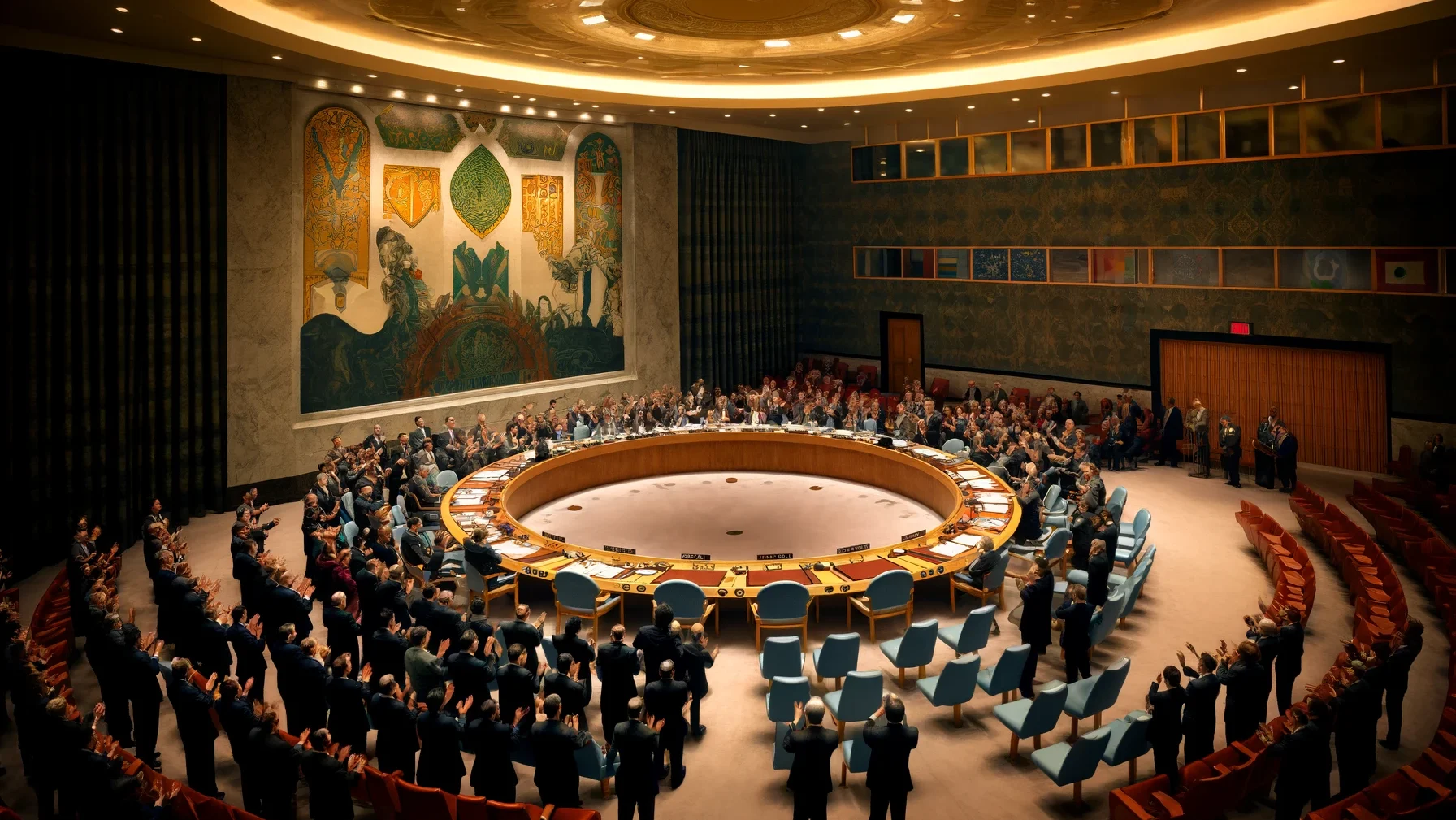The True Face of the UN Security Council
Maariv, Israel, March 29
In its recent resolution calling for a cease-fire in Gaza, the UN Security Council witnessed a rare and unorthodox event. The ambassadors from member countries applauded the decision loudly, breaking the usual diplomatic decorum observed around the council’s curved table. It seemed as if the applause aimed to depict the approval as a special triumph for the council. This inadvertently exposed a sense of insecurity and inferiority that has long plagued the council. The enthusiastic response to the decision appeared to reflect a fleeting moment of validation. “We exist; we achieved something,” quipped a seasoned Asian diplomat. The rekindled optimism, however, may be short-lived. Amid widespread panic in Israel over the resolution and the US’s choice not to veto it, reports and commentaries flooded the media. The American abstention signaled not a rift in US-Israel relations, but discontent with Prime Minister Benjamin Netanyahu’s approach toward the US. A Western delegation official close to the White House downplayed the incident, asserting there would be no change in US support for Israel. Criticizing Netanyahu’s response to the US abstention, senior diplomats in New York stressed the importance of respectful dialogue with allies. In intellectual circles in New York, a long-standing debate highlights the Security Council’s waning authority. Despite having the power to enforce decisions, including military action, the recent cease-fire resolution is seen as symbolic rather than practical. Sanctions against Israel are unlikely to materialize, although some countries may seize the opportunity to take legal action against Jerusalem. The Security Council’s diminished influence is evident in its handling of global crises over the past decade. A notable example is the lack of response to Bashar Assad’s atrocities in Syria. The council remained silent during the prolonged conflict, showcasing paralysis and impotence. Furthermore, the council failed to address Russian aggression in Ukraine, highlighting the detrimental impact of veto power. The ongoing conflicts in Syria and Ukraine underscore the council’s ineffectiveness in maintaining global peace. The Security Council’s credibility has not only eroded but also exposed international rifts and hostilities. Amid the geopolitical standoff between the US and Russia, the council’s involvement in the Gaza conflict exposed deep-rooted divisions. As Russia grapples with its entanglement in Ukraine, the US strives for stability in the volatile Middle East. In this complex geopolitical landscape, Israel’s alliance with the US positions it favorably as a stalwart of peace and security. As Russia faces international scrutiny for its actions in Ukraine, the US’s efforts to broker peace in the Middle East offer a glimmer of hope for regional stability. Ultimately, restoring the UN Security Council’s reputation requires more than symbolic gestures. It necessitates a concerted effort by world powers to address global conflicts and uphold the principles of peace and security. Israel’s steadfast alliance with the US underscores its commitment to these ideals in a complex and challenging global landscape. —Shlomo Shamir (translated by Asaf Zilberfarb)


